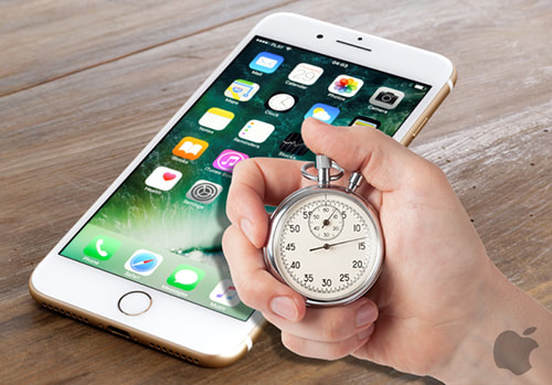That’s right, the global technology leader and iconic iPhone maker wants to lessen smartphone use. Such a notion sounds as believable as Dunkin limiting donut sales or Papa John’s restricting pizza purchases, but Apple actually has a strategy for curbing customer consumption.
At its recent Worldwide Developers Conference (WWDC) in San Jose, Apple’s Craig Federighi described the plans, which are part of the company’s Digital Health Initiative: “a series of tools to help users monitor how much time they spend on their devices and inside of certain applications.”
More specifically, the new software features will allow users to do things such as:
- Monitor and set limits on their screen time
- Manage notifications more effectively in order to avoid distracting pings from texts, etc.
- Set better parameters for Do Not Disturb, e.g., during meals or bedtime
All of this sounds nice, but let’s be real: Companies want consumers to use their products more, not less. Can you imagine a business meeting in which the CEO says, “We need to see a 15% decrease in sales next quarter”? Such self-limiting action almost never happens; however, it can occur, and there are plausible reasons for Apple to consider it.
First, it’s helpful to recognize Apple’s unique position of influence. With a market cap that’s approaching an unimaginable $1 trillion, Apple is the world’s most valuable company. It’s global share of smartphones is second only to Samsung, and in the fourth quarter of 2017, Apple’s sales surpassed those of its close rival. In the United States, Apple is the leading smartphone OEM (Original Equipment Manufacturer).
For these reasons, Apple generates considerable public interest (big understatement), which comes with a higher degree of scrutiny than most companies ever experience. Almost anything Apple does, or doesn’t do, is newsworthy and plays out in the media spotlight.
Second, technology is, for many of us, a mixed blessing. We love the things it does for us, but we’re worried about everything from artificial intelligence taking our jobs to smart speakers co-opting our kids. We’re also concerned how digital devices, despite their benefits, may be adversely affecting our daily lives.
That’s the context in which Apple operates. In sum, the company is ‘the’ culture-tech leader in a world that’s still trying to figure out what’s appropriate use of smartphones and similar devices. By self-regulating, Apple seems to be stepping up and saying that it will be ‘the adult in the room.’
So, maybe Apple’s Digital Health Initiative is socially responsible and perhaps it will generate goodwill, but won’t the program also threaten the firm’s financial health? Probably not. Though rare, there are legitimate reasons why a company might try to decrease use of its own products:
- To avoid legal issues: A classic example is a bar refusing to serve a patron who has already had one too many drinks. The pub could see a lawsuit if one of its customers drives drunk and injures another person.
- To lessen crowding: No one wants to be packed like sardines into an airplane, train, etc. So, transportation companies often raise prices during peak travel times in order to decrease demand. Some highways have even implemented a similar approach of “dynamic tolls” in order to reduce rush-hour traffic.
- To increase customer satisfaction: The law of diminishing marginal utility says that people gain less enjoyment per unit from each additional unit they consume and at some point, the cost of consumption starts to outweigh its benefits. No organization should push its customers beyond that point. Short-run sales may be nice, but customer regret will hurt the company in the long run.
This third reason is likely the one that Apple’s Digital Health Initiative has most squarely in mind. If consumers use their iPhones in excess, they could jeopardize their jobs, their education, their relationships, and more. At any of those points, their attitude toward Apple could change for the worse, which might lead them to drop their smartphones entirely, as some people have done, including a surprising set of A-list celebrities.
For these reasons, we can place some trust in Apple’s self-regulation initiative. Laws aimed at curbing smartphone use are very unlikely to come. Furthermore, the company deserves kudos for getting the jump on any significant social pressure to reform. In this case, less Apple is more “Mindful Marketing.”
Learn more about the Mindful Matrix and Mindful Meter.
Check out Mindful Marketing Ads and Vote your Mind!




 RSS Feed
RSS Feed